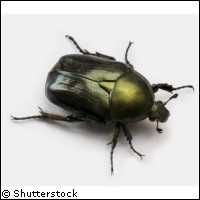Scientists shed light on beetle diversity
Beetles owe their extraordinary diversity to their early evolution (they first appeared during the time of the dinosaurs), the high survival rate of these lineages and their ability to diversify into a range of niches. Around 350,000 species of beetle have been discovered, meaning they account for some 25% of all known life forms on the planet. 'With beetles forming such a large proportion of all known species, learning about their relationships and evolution gives us important new insights into the origin of biodiversity and how beetles have triumphed over the course of nearly 300 million years,' explained Professor Alfried Vogler of Imperial College London and the Natural History Museum, who led research on the diversity of beetles. The research, which is partly funded by the EU, is published in the latest edition of the journal Science. EU support for the research came from the SysResource ('Increasing access for European researchers to systematics resources and analytical facilities') project, which was funded under the 'Improving the human research potential and the socio-economic knowledge base' section of the Fifth Framework Programme (FP5). For many years, scientists have debated the reasons behind the large numbers and sheer diversity of the beetles. Many believed that beetles had evolved and diversified in parallel with flowering plants, on which they fed. Professor Vogler and his team compared the DNA of almost 1,900 beetle species representing over 80% of the world's recognised beetle families. This enabled them to construct a detailed beetle family tree. This showed that in fact many of the modern beetle lineages were already present when the first flowering plants appeared. These lineages have survived to the present day thanks to beetles' ability to take advantage of new ecological opportunities and develop different lifestyles and feeding types. 'Unlike the dinosaurs which dwindled to extinction, beetles survived because of their ecological diversity and adaptability,' commented Professor Vogler.



